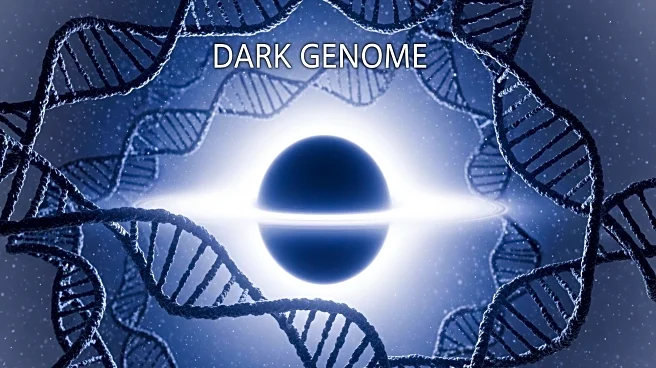What's Happening?
A recent study conducted by researchers at the Sanford Stem Cell Institute has revealed that human stem cells experience significant stress in the microgravity environment of space, leading to the activation of ancient DNA segments known as the 'dark genome.' This discovery was made using a device aboard the International Space Station, which monitored the behavior of stem cells from hip replacement surgery patients. The study found that these cells aged faster in space compared to those on Earth, potentially impairing astronauts' regenerative abilities. This finding adds to existing concerns about the health risks associated with space travel, including bone loss, cognitive decline, and vision deterioration. The research highlights the importance of understanding stem cell health for long-term space missions, as these cells are crucial for immune system function and overall health.
Why It's Important?
The activation of the 'dark genome' in astronauts poses significant implications for their health during extended space missions. As stem cells are vital for regeneration and immune system support, their decline in function could lead to increased vulnerability to diseases and slower recovery from injuries. This research underscores the need for effective countermeasures to protect astronauts' health, which could also benefit medical research on Earth. By understanding how stem cells react to microgravity, scientists can develop strategies to mitigate these effects, potentially accelerating cancer research and improving treatments for age-related diseases. The study highlights the broader impact of space exploration on human health and the importance of addressing these challenges as space travel becomes more frequent.
What's Next?
Researchers are now focusing on developing clinical trials for medications that could suppress the aging process triggered by the 'dark genome.' These trials aim to find solutions that can protect astronauts from the adverse effects of microgravity. Additionally, upcoming studies suggest that stem cells may recover once back on Earth, offering hope for reversing the damage caused by space travel. The findings could lead to advancements in medical treatments, benefiting both astronauts and patients on Earth. As space agencies plan longer missions, understanding and mitigating these health risks will be crucial for ensuring the safety and well-being of astronauts.
Beyond the Headlines
The activation of the 'dark genome' in space raises ethical and scientific questions about the long-term effects of space travel on human health. It challenges researchers to explore the evolutionary aspects of human DNA and its response to extreme environments. This research could lead to a deeper understanding of genetic resilience and adaptation, potentially influencing future studies on human longevity and disease prevention. The implications extend beyond space travel, offering insights into the fundamental processes of aging and cellular stress.









